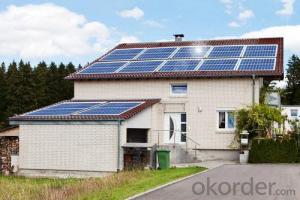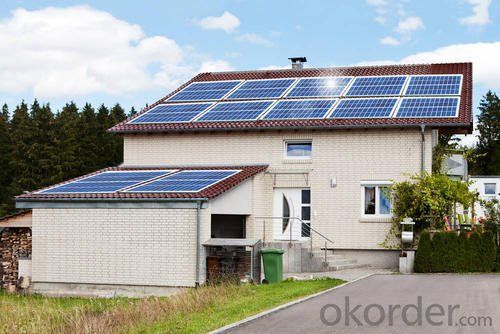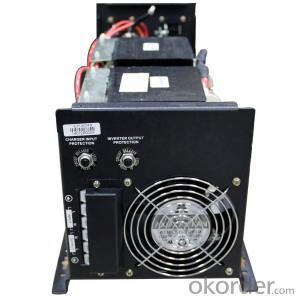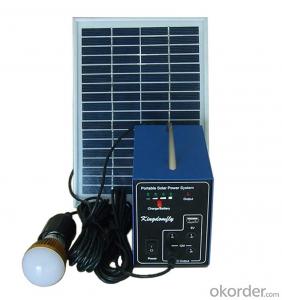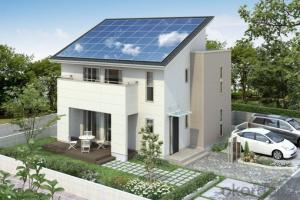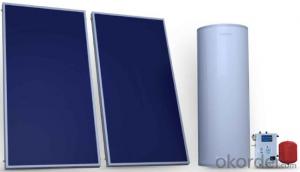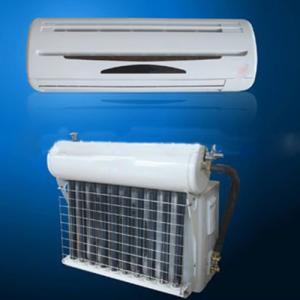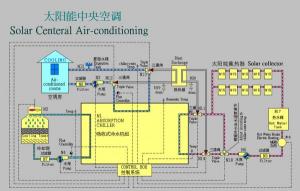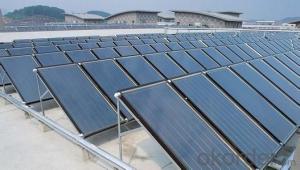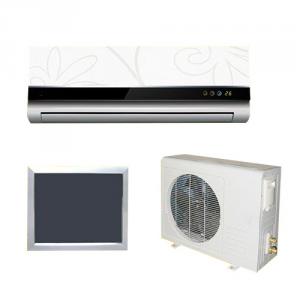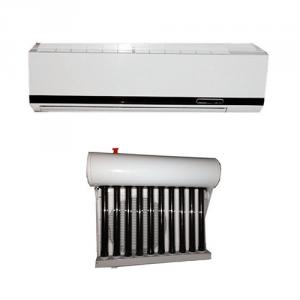Solid Solar Energy Split-Type Home Energy Storage System
- Loading Port:
- Shanghai
- Payment Terms:
- TT OR LC
- Min Order Qty:
- 1 set
- Supply Capability:
- 500 set/month
OKorder Service Pledge
OKorder Financial Service
You Might Also Like
Specification
1. Descriptions of Split-type Solar Home Energy Storage System
- Split-type solar home energy storage system is a collection of lithium-ion battery packs, intelligent controllers and output control of household energy storage control system,Has the advantages of high energy density, long cycle life, good temperature characteristics, excellent safety performance
- Output panel can read the battery capacity and voltage at any time, a key control is simple and convenient, double protection and application of high security, Three sets of voltage stable output, suitable for a variety of low-voltage electrical appliances, low-voltage output more secure, compact and easy to install
2. Component of the split-type solar home energy storage system
- Solar panels spring
-Split-type home energy storage system
-Output control panel
3. Technical Parameter Split-type Solar Home Energy Storage System
| Model | LVSS-FJY03600 | LVSS-FJY07200 | LVSS-FJY12000 | LVSS-FJY16800 | LVSS-FJY24000 | |
| Load | Power | 15W | 30W | 50W | 70W | 100W |
| Description | Light bulb/ Fan/ DVD | Light bulb+Fan/ Light bulb+DVD/ Light bulb+DVD | TV set Set-top boxes | TV set+Set-top boxes Light bulb+Fan/ Light bulb+DVD/ Light bulb+DVD | TV set +Set-top boxes +light bulb +Car refrigerator | |
| Solar panel | Power | 90Wp | 180Wp | 300Wp | 450Wp | 640Wp |
| Lithium battery system | Capacity | 360Wh | 720Wh | 1200Wh | 1680Wh | 2400Wh |
| Continuous working time | 24H | |||||
| Working temperature | -50°C - 55°C | |||||
| Warranty | 3 years | |||||
4. Image
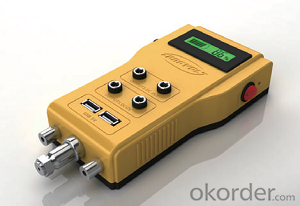
5. FAQ
- Package?
Carton, Transported by sea.
- Q: Can solar energy systems be used for powering electronic devices?
- Yes, solar energy systems can be used to power electronic devices. Solar panels can convert sunlight into electricity, which can then be used to charge and power various electronic devices such as smartphones, laptops, and even larger appliances like refrigerators and air conditioners.
- Q: Can solar energy systems be used for desalination?
- Yes, solar energy systems can be used for desalination. Solar desalination involves using solar energy to power the desalination process, typically through either solar thermal or solar photovoltaic technologies. This renewable energy source can be harnessed to heat water or generate electricity, which can then be utilized to remove salt and other impurities from seawater or brackish water, making it suitable for drinking or agricultural purposes. Solar desalination offers a sustainable and environmentally friendly solution to address water scarcity issues in regions with abundant sunlight.
- Q: What are the components of a solar energy system?
- A solar energy system consists of several key components that work together to harness the power of the sun and convert it into usable electricity. The main components of a solar energy system include: 1. Solar Panels: These are the most recognizable element of a solar energy system. Solar panels, also known as photovoltaic (PV) panels, are made up of multiple solar cells that convert sunlight into direct current (DC) electricity. They are typically mounted on the roof or ground to capture sunlight. 2. Inverter: The DC electricity generated by the solar panels needs to be converted into alternating current (AC) electricity, which is the type of electricity used in homes and businesses. An inverter is responsible for this conversion process, ensuring that the electricity can be used by various appliances and devices. 3. Mounting System: Solar panels need to be securely mounted on rooftops or on the ground. The mounting system consists of racking or frames that hold the panels in place and allow for optimal sunlight exposure. The mounting system also ensures that the panels are installed at the correct angle and orientation to maximize energy production. 4. Electrical Wiring: Proper electrical wiring is crucial to connect the solar panels, inverter, and other components of the solar energy system. The wiring carries the electricity from the panels to the inverter, and then to the electrical panel of the building, where it can be distributed and used. 5. Batteries (Optional): In some solar energy systems, batteries are included to store excess electricity generated during the day for use during the night or during periods of low sunlight. These batteries store the excess energy and release it when needed, allowing for a more consistent and reliable power supply. 6. Monitoring System: Many solar energy systems come with a monitoring system that allows users to track the performance and energy production of their system. This can be done through a web-based platform or a smartphone app, providing real-time data on energy generation, consumption, and savings. 7. Grid Connection (Optional): Solar energy systems can be connected to the electrical grid, allowing excess electricity to be fed back into the grid when the system produces more energy than is being used. This is known as net metering, and it allows homeowners to earn credits or receive compensation for the excess energy they generate. Overall, a solar energy system is a complex and interconnected set of components that work together to harness the sun's energy and convert it into usable electricity for various applications. These components enable individuals and businesses to reduce their reliance on traditional fossil fuel-based energy sources and contribute to a cleaner and more sustainable future.
- Q: Are there any financing options available for purchasing solar energy systems?
- Yes, there are several financing options available for purchasing solar energy systems. One common option is to take out a solar loan, which allows homeowners to borrow money specifically for the purchase and installation of a solar energy system. These loans typically have low interest rates and flexible repayment terms, making them an affordable option for many homeowners. Another financing option is to lease a solar energy system. With a solar lease, homeowners can have a solar energy system installed on their property without having to pay for the equipment upfront. Instead, they make monthly lease payments to the solar company in exchange for using the solar energy generated by the system. This option is especially popular for homeowners who don't want the responsibility of maintaining and repairing the equipment themselves. Additionally, some states and municipalities offer solar incentives and tax credits to help offset the cost of installing solar energy systems. These incentives can include grants, rebates, or tax credits that reduce the upfront costs of purchasing and installing solar panels. It's important to research what incentives are available in your area, as they can significantly reduce the overall cost of going solar. Finally, some solar companies offer power purchase agreements (PPAs), where homeowners pay for the solar electricity they use at a predetermined rate. This option allows homeowners to benefit from solar energy without any upfront costs, as the solar company owns and maintains the equipment. While PPAs can be a good option for some homeowners, it's crucial to carefully review the terms and conditions before entering into a contract. Overall, there are various financing options available for purchasing solar energy systems, making it more accessible and affordable for homeowners to transition to clean and renewable energy sources.
- Q: What is the impact of shade from nearby buildings or trees on the performance of solar panels?
- The performance of solar panels is significantly affected by the shade caused by nearby buildings or trees. Even partial shading can greatly reduce their ability to generate electricity by decreasing the amount of sunlight reaching the panels. This shading can lead to a phenomenon called "panel mismatch," where some parts of the panel receive sunlight while others remain in shade. As a result, shaded cells produce less electricity than unshaded cells, resulting in an overall drop in panel performance. Additionally, shaded cells can create resistance, causing the other cells to work harder and potentially causing hotspots or damage. Furthermore, shade can disrupt the electrical flow within the panels, negatively impacting the entire solar power system. In series-connected panels, even one shaded cell can significantly reduce the output of the entire array, resulting in a substantial loss of power generation and affecting the return on investment and payback period. Considering the shading factor is crucial when designing and installing solar panels. Conducting shading analysis can reveal potential areas of shade throughout the day and year. By avoiding or mitigating shading, the performance and efficiency of solar panels can be optimized. There are various measures that can be taken to address shading issues, such as adjusting the tilt and orientation of the panels, trimming or removing nearby trees, or utilizing technologies like micro-inverters or power optimizers that minimize the impact of shade on the system. In conclusion, nearby buildings or trees causing shade have a significant impact on the performance and efficiency of solar panels, reducing their power generation potential. Considering shading factors during the design and installation process is crucial to maximize the benefits of solar energy.
- Q: Can solar energy systems be used to power homes?
- Yes, solar energy systems can be used to power homes. Solar panels capture sunlight and convert it into electricity, which can then be used to power various appliances and systems within a home. This sustainable and renewable energy source can provide a reliable and cost-effective alternative to traditional utility electricity.
- Q: Can a solar energy system be installed on a historic building?
- Yes, a solar energy system can be installed on a historic building. However, it may require careful planning and consideration to ensure that the installation does not compromise the historical integrity or aesthetics of the building. It is important to work with experts in historic preservation and solar energy to find the most suitable design and implementation for the specific building.
- Q: What is the role of solar water pumps in solar energy systems?
- The role of solar water pumps in solar energy systems is to harness the power of the sun to pump water, eliminating the need for traditional electricity sources. These pumps are essential in providing clean and sustainable water supply for agricultural irrigation, livestock watering, and domestic use in areas with limited access to electricity or unreliable grid power. By utilizing solar energy, these pumps contribute to reducing carbon emissions and promoting renewable energy adoption.
- Q: How efficient are solar energy systems?
- Solar energy systems are highly efficient as they convert sunlight directly into electricity or heat without any moving parts. With advancements in technology, solar panels can now convert up to 20% of sunlight into usable energy, making them a reliable and sustainable source of power. Additionally, solar energy systems have a long lifespan and require minimal maintenance, further enhancing their efficiency.
- Q: Can solar energy systems be used for powering electric grids?
- Yes, solar energy systems can be used to power electric grids. Solar power plants, comprised of numerous solar panels, can generate electricity from sunlight. This electricity can be fed into the electric grid, supplementing or even replacing traditional sources of power such as fossil fuels.
Send your message to us
Solid Solar Energy Split-Type Home Energy Storage System
- Loading Port:
- Shanghai
- Payment Terms:
- TT OR LC
- Min Order Qty:
- 1 set
- Supply Capability:
- 500 set/month
OKorder Service Pledge
OKorder Financial Service
Similar products
Hot products
Hot Searches
Related keywords
